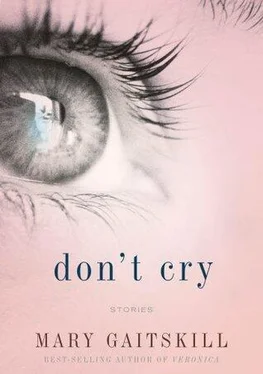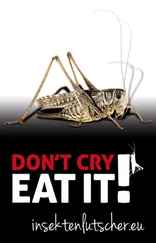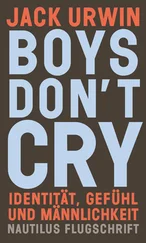How Marisa looked: narrow-framed and supple, giving the appearance of coiled quickness, like a pretty weasel; small lips, short unpolished nails, blue eyes, poised, expectant posture. On the street one night, a homeless guy sitting on the sidewalk had yelled as they passed. “Hey chickie! Little chicklet! Come sit on me; you'd fit me like a glove!” She'd said, “He sounds so wistful,” her voice hitting wistful as if it were two words, one pitched high, the other low.
He wondered what kind of girl would preen at sexual praise from a homeless guy — but it was true: Marisa was supple and functional as a glove. There was no waste, nothing excessive in her words or movements, not even during sex. When she broke up with him and he tried to make her change her mind, she said, “Don't make me feel sorry for you.” And that was that.
Then he had to sit through a three-hour class with her every week. It was Janice's class. Two days after the breakup, they read a story by Chekhov in which a cruel woman scalds a girl's baby to death. Janice read aloud the part where the girl is returning home from the hospital on foot, at night, in the woods. She wanted them to notice the “soft and open quality” of the description, of the darkness and its sounds — animals, insects, the voices of men. Joseph sat across from Marisa, immersed in darkness. He was astonished that such pain could have been roused by this small alert girl who would not meet his eyes. He told himself it would pass, that he only had to ride it out. “Yours is not the worst of sorrows.” An old man in the story said that to the young girl who had lost her child; he said it to comfort her.
Janice asked them whether they could imagine such a scene written now. The suffering girl walking in the live darkness, the vast world of creatures all around. The girl and her suffering a small thing in this mysterious, still-soft, and beautiful world. Through this description of physical life, said Janice, mystery was bigger than human feeling, and yet physical life bore up human feeling as with a compassionate hand.
Joseph slowed his pace and looked at physical life: bushes, mountains, stones. The warm sun dappling the path, a tiny red rag someone had tied to the branch of a small tree. Grasses. Bugs. He could not connect any of it with Janice's talk about mystery or compassion. But at the time, her words had moved him. He had looked at Marisa and had known with certainty that his was not the worst of sorrows.
Two weeks later, his mother had called and said she had cancer.
“Am I walking too fast for you?” Kevin was turned around, walking backward.
“I'm just not in a hurry,” said Joseph, picking up his pace.
Kevin slowed to wait for him; the path was now wide enough for them to walk abreast.
“I'm thinking about what I'm going to do,” said Joseph, “like for a job.”
“Yeah,” said Kevin, “I know. I am, too. People think it's going to be easy for me because of the essay. But I doubt it.”
Easier for you than for some, thought Joseph. He looked up at the tree line on a ridge above them, at the branches moving gently against the sky.
“What is it?” asked Kevin.
“When my mom was sick, I would sometimes come out of the apartment at night and watch the trees move against the sky. It made me feel better. I don't know why.”
“I understand that,” said Kevin. And his back gave off a different kind of feeling.
Joseph's mother and father had been divorced for eight years. His younger brother, Caleb, was in Ohio studying theater. His mother lived alone in Westchester, where she ran an upscale women's clothing store that made money. She did not have a lover, but she had a lot of friends. She told her friends about the tumor in her breast before she told anyone in her family When she told him, she'd known for nearly a week.
“Why?” he asked, astonished. “Why did you wait?”
“I was afraid you might cry,” she said. “I didn't want to make my sons cry.”
God, how ridiculous was that? Ridiculous and theatrical. He hadn't cried since he was about ten. He felt guilt for being annoyed with her, then sick-making pity.
She said that the prognosis was good, that they were doing the mastectomy just to be sure. She was going to have a reconstruction done at the same time; they would use tissue from her stomach. “I hope you don't think that's grotesque,” she said. “But fifty is the new forty and forty-three is too young to be disfigured like that.” She laughed. He said he would come to be with her. She said he didn't have to do that, that she didn't want him to miss school. “Don't be silly!” he snapped. “I'm going to come.”
“I think of Max when I hear certain songs on the radio,” said Kevin. “Songs I know he really likes.”
Kevin's brother, Max, was a marine; he'd been in Iraq almost a year. “How's he doing?” asked Joseph.
“Okay, I guess.” Kevin paused. “I'm not sure. He calls. But I'm not sure he tells us what's really going on.”
When Joseph called his brother to talk about their mom, Caleb said, “This could not have come at a worse time. I guess stuff like this always does.”
“Are you coming to New York?” asked Joseph. “No,” said Caleb. “She said she didn't want me to.” “She says that, but she doesn't mean it; it's obvious.” “Joseph, I can't. I'm playing Ricky Roma in Glengarry Glen Ross. I'm rehearsing nonstop. She's going to be all right; she said the doctor said that. It's awful, but breast cancer is so common now, it's practically normal for a woman her age.”
He had to call his father several times before he got him on his cell. He was driving in his car, going somewhere with his wife, who was almost twenty years younger than Joseph's mother. When Joseph told him, he was quiet for a long moment. Then he said, “Well, I never would've wished that on her. She was so vain about her body, it's going to be bad for her.” Joseph rolled his eyes, but it was true: His mother was vain. She had reason to be. Just five years ago, his friends had said, “Dude, your mom is hot,” and they were only half-joking.
“Call me anytime,” said his father. “I don't want you to be alone through it.”
“Can you call Caleb?” asked Joseph. “Can you tell him to come? Mom told him it was okay if he didn't, but I know she wants him to. And if something happens to her, he's going to feel horrible.”
His father sighed. “I know how you feel, Joe. But I don't think you can tell someone to do something like that.”
“You ought to be able to,” said Joseph. “If you're his father.” And he hung up.
The path narrowed, but they continued to walk abreast, so close that their shoulders rubbed together. “Ruskin's ideas are pretty ironic,” said Joseph, “considering the way he treated his wife.”
“What do you mean?”
“He refused to have sex with his wife. After courting her for years, starting when she was something like twelve. He'd written these passionate love letters to her when she was a child. Then she got old enough to marry and — forget it. Wouldn't touch her. It went on for years. Finally, when she was nearly thirty she said, Enough. It was the most notorious divorce trial of the time.”
He went to see his mother a day before the operation. She met him at the train station, smiling and waving. She was wearing tight pants and a down jacket, like a woman in her twenties might wear. They went to the store to shop for “nice ham and tomatoes;” she wanted to make sandwiches the way she'd made them on some occasion that he could not remember. She loaded the cart with ice cream, imported cookies, sardines, artichoke hearts, paper towels, and cleansers. She got upset because the fancy-ham counter was closed, then angry because there weren't any good tomatoes. Angrily, she chose processed slices of ham and hard, pale tomatoes. “I'm so sorry,” she said. “I should've come earlier, and now it's too late. Our night is ruined.”
Читать дальше












